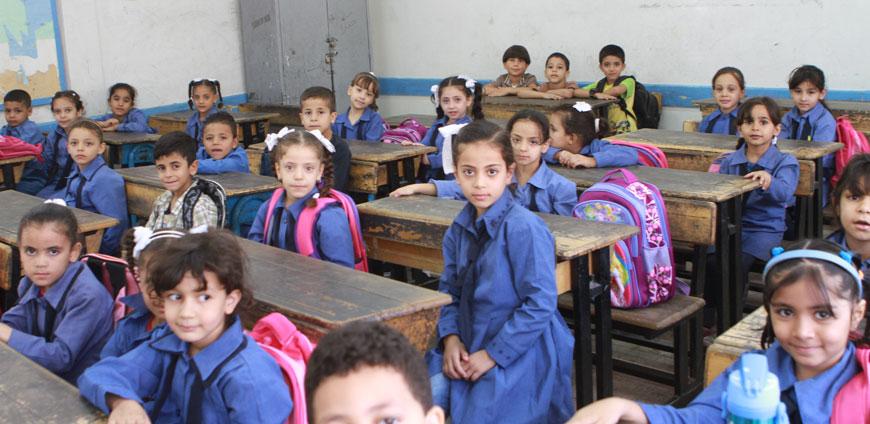You are here
Jordan’s efforts to educate Syrian children ‘unrivalled’ — gov’t
By Mohammad Ghazal - Aug 17,2016 - Last updated at Aug 17,2016
AMMAN — Jordan has provided unrivalled support for the education of Syrian children, the government said on Tuesday, after Human Rights Watch (HRW) called on the Kingdom to address policies that “restrict Syrian refugee children’s access to schools”.
"No country has offered what we have to Syrian students, in spite of our limited resources and the insufficient support we receive," said Minister of State for Media Affairs Mohammad Momani.
More than 145,000 Syrians are enrolled in Jordan’s public schools, and many schools are working in two shifts to accommodate the large number of Syrian children, said Momani, who is also the government spokesperson.
In a report issued on Tuesday, HRW said that more than one-third of school-aged Syrian children registered with the UN in Jordan were not in formal education in the last school year.
“Jordan has taken difficult, noteworthy steps to get Syrian refugee children in school, but many who fled the horror of Syria’s war are still missing out on an education and the future it offers,” said Bill Van Esveld, senior children’s rights researcher at HRW, in a statement released with the report.
“Donors who are stepping up support urgently need to work with Jordan to remove policy barriers that are keeping children and youth out of school,” he added.
The 97-page report states that Syrians face several obstacles in education, to asylum-seeker registration requirements that many Syrians cannot meet, punishments for refugees working without permits, child labour and a bar on enrolment for children who have been out of school for three or more years.
Jordan has eased some restrictions, but authorities should expand efforts to realise the fundamental right to education for all Syrian children, HRW said.
In response, Momani said that Jordan had only received $55 million (JD39 million) from the donor community in 2016, far short of the $1 billion donors pledged at the London conference to support education in the Kingdom.
“This is very slow. The provision of aid should be accelerated. We have done a lot in this regard,” Momani said.
The minister added that the government is also working with UNICEF to open schools for Syrians at refugee camps in addition to opening the public schools to Syrian students.
“It is a moral duty for us to enrol those students in our schools, but other countries need to do their part of the job as well,” said Momani.
The Ministry of Education plans to increase the number of public schools receiving Syrian students from 102 to 200 and to receive an additional 50,000 students, to bring the number of enrolled Syrians to 193,000.
Since 2011, Jordan has opened schools in refugee camps and put in place “double shifts” at public schools to create more places for Syrian children.
A donor-funded plan could accommodate up to 75,000 more children in the upcoming school year, HRW indicated in its report.
The watchdog acknowledged that international humanitarian assistance, while crucial for refugees’ survival, is often insufficient,
Child marriage among Syrians has ballooned from 12 per cent to at least 32 per cent in Jordan since 2011. Girls face additional obstacles in education, as parents worry about older girls’ safety on the way to school.
HRW added that the Syrian conflict has cost Jordan $2.5 billion annually, according to World Bank estimates.
In a related development, Deputy Prime Minister for Services and Education Minister Mohammad Thneibat said Tuesday that Jordan has opened its schools to refugees, offering them quality education side-by-side with Jordanian students.
Besides Syrians, 40,000 students from other nationalities are also enrolled in public schools, the Jordan News Agency, Petra, quoted Thneibat as saying in remarks at a ceremony held at the Dead Sea to launch the back-to-school campaign.
Related Articles
AMMAN — The Education Ministry needs an additional $27 million this year to cover the cost of serving Syrian students, Deputy Prime Minister
AMMAN — Over 200,000 students of 85 nationalities are enrolled at Jordan's public schools, Deputy Prime Minister and Education Minister Moha
AMMAN — Human Rights Watch (HRW) has praised steps taken by the government to facilitate education for Syrian refugee children.In a statemen












